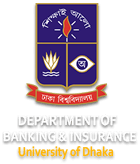Impact of the Qualities of Sharia’h Supervisory Board Members on Cost Efficiency of Bangladeshi Islamic Banks

Muhammad Saifuddin Khan1, Saifur Rahman Chowdhury2
Published: 14 October 2022
Journal of Banking & Financial Services
Volume 13 Number 1 June 2021
DOI :
ISSN : 1990-5157
Abstract
This paper investigates the relation between political connection and financial performance of 29 commercial banks of Bangladesh which are listed in Dhaka Stock Exchange for the period from 2009 to 2018. From developed countries to third world countries, political connections have been seemed to open doors of the organisation to additional resources. This happens as politicians use their influences to help organisations to gain more profit. This is truer in case of banking organisations where additional leverage or resource can create more profit and political influence may have an impact on profit making ability of the bank. This research is structured to assess how existence of Member of Parliament in the board of a bank increases or decreases its financial performance over the years. This study uses Feasible Generalized Least Squares method (FGLS) regressions which addresses the problems of heteroskedasticity and autocorrelation. This study finds that political connections have negative impact on the financial performance of commercial banks in Bangladesh proxied by net interest margin (NIM) and Tobin’s Q. This study also finds that political connections have positive impact on deposits but negative impact on loans.
Keywords: NIM; ROE; Tobin’s Q; Political Connection; MP; Bank; FGLS
Notes on Contributor
